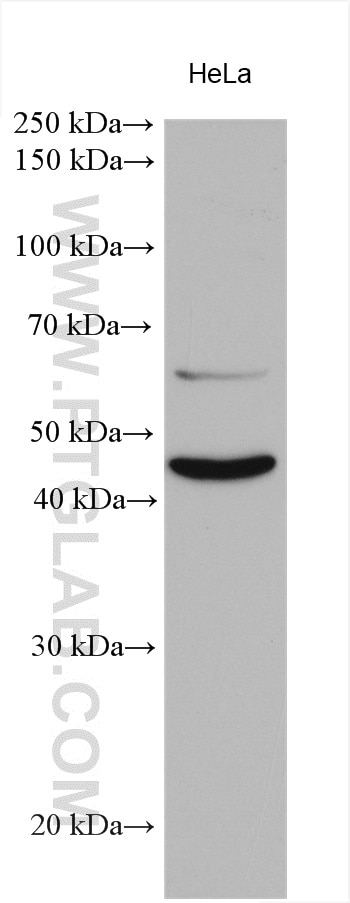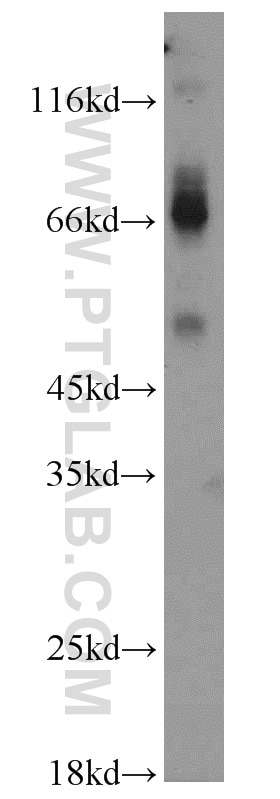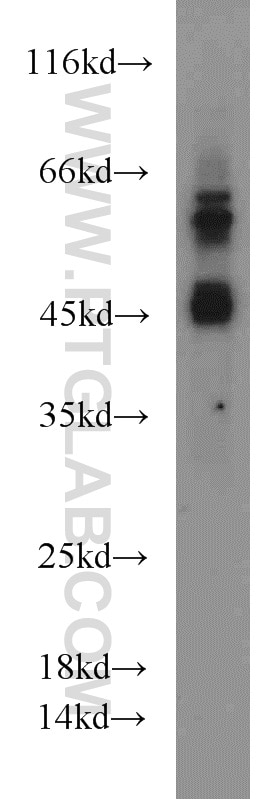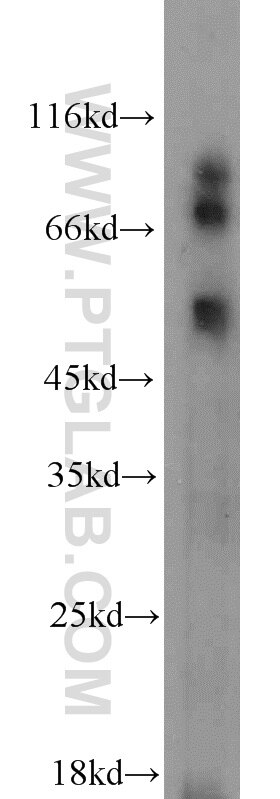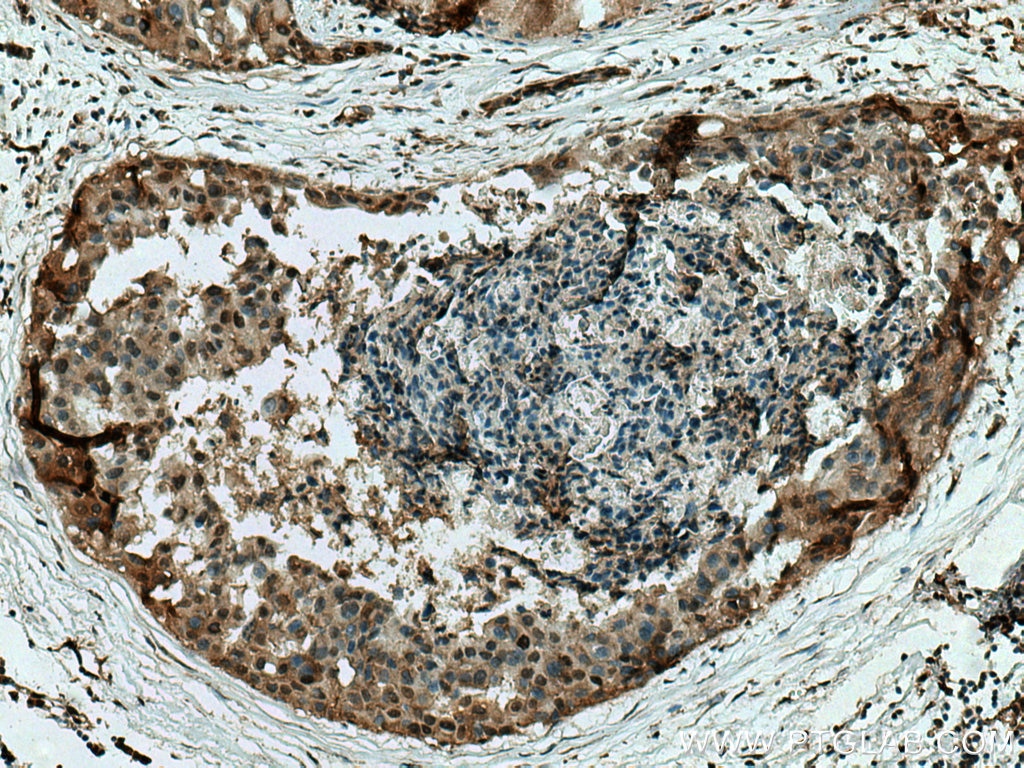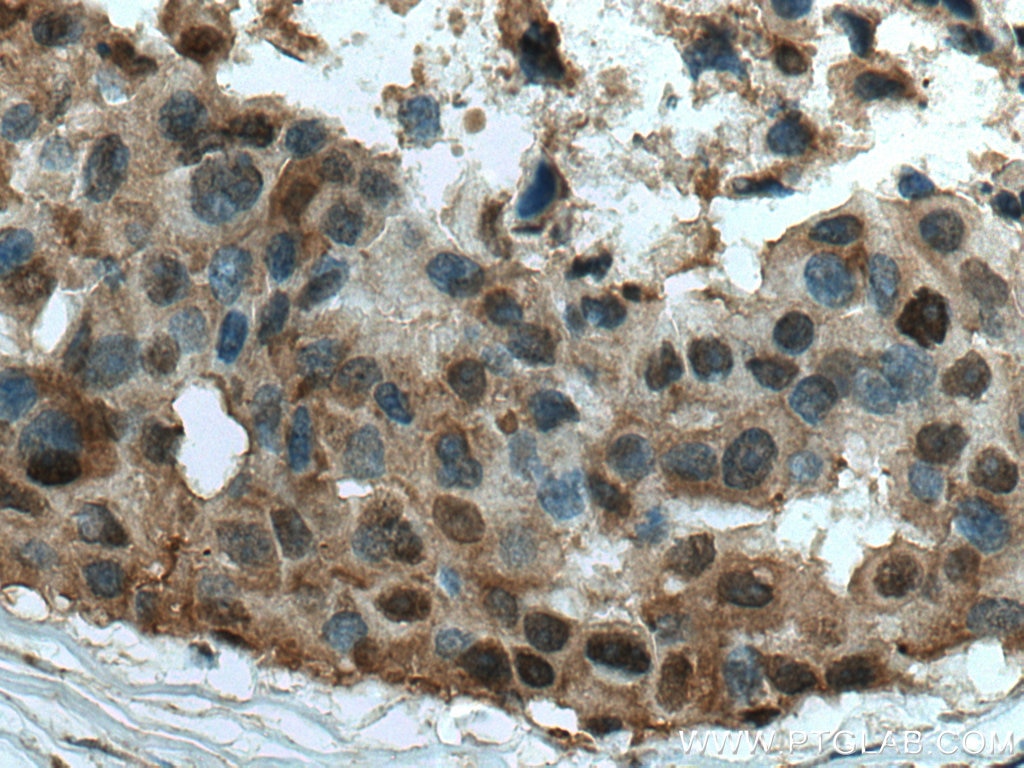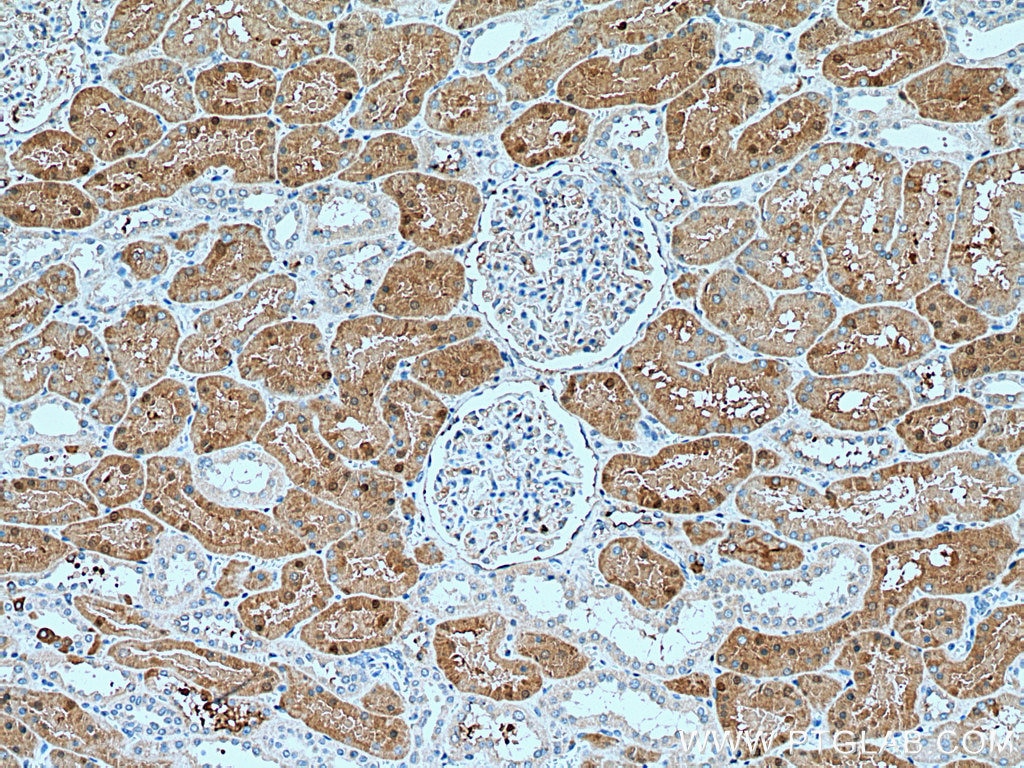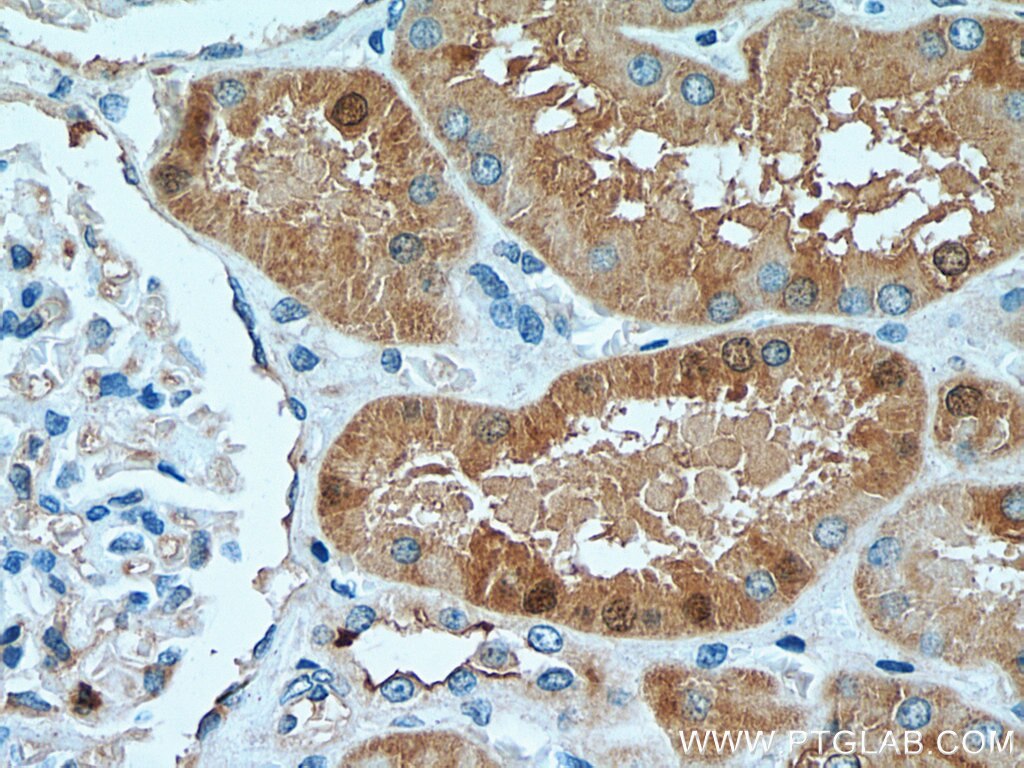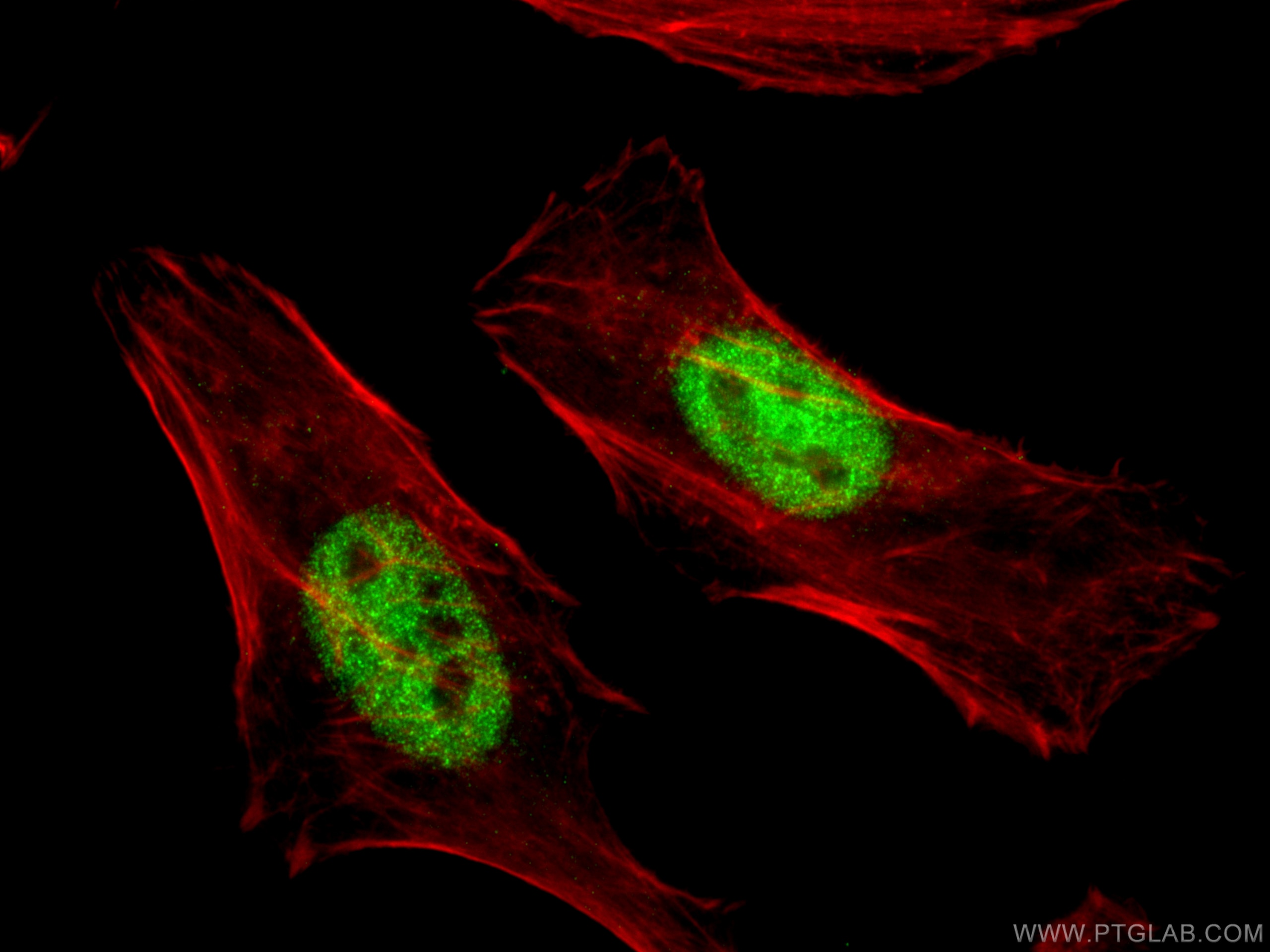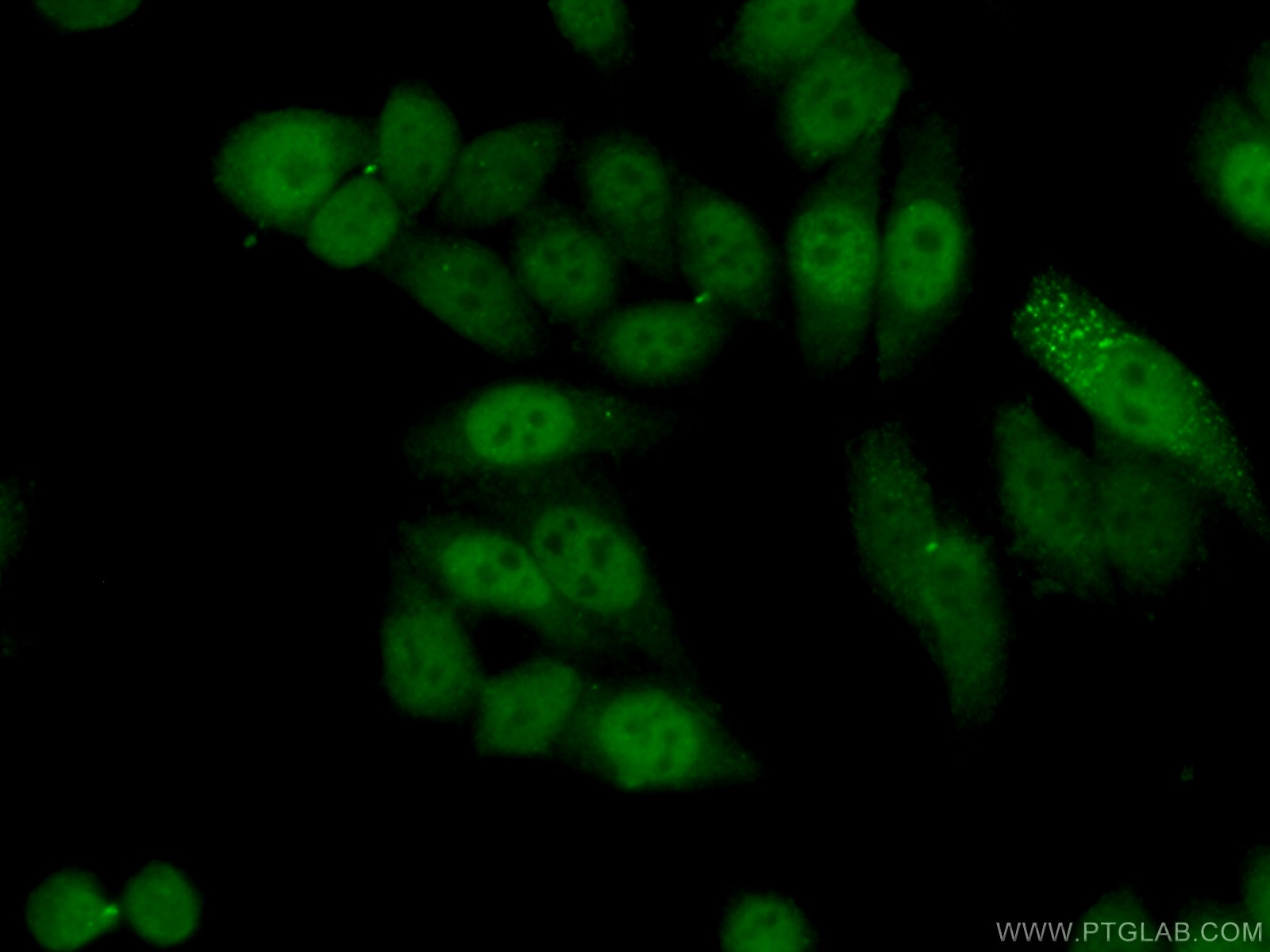Anticorps Polyclonal de lapin anti-MAPKAPK2
MAPKAPK2 Polyclonal Antibody for WB, IF, IHC, ELISA
Hôte / Isotype
Lapin / IgG
Réactivité testée
Humain, souris
Applications
WB, IHC, IF/ICC, ELISA
Conjugaison
Non conjugué
N° de cat : 13949-1-AP
Synonymes
Galerie de données de validation
Applications testées
| Résultats positifs en WB | cellules HeLa, cellules A549, tissu de côlon de souris, tissu de muscle squelettique de souris |
| Résultats positifs en IHC | tissu de cancer du sein humain, tissu rénal humain il est suggéré de démasquer l'antigène avec un tampon de TE buffer pH 9.0; (*) À défaut, 'le démasquage de l'antigène peut être 'effectué avec un tampon citrate pH 6,0. |
| Résultats positifs en IF/ICC | cellules HeLa, |
Dilution recommandée
| Application | Dilution |
|---|---|
| Western Blot (WB) | WB : 1:500-1:1000 |
| Immunohistochimie (IHC) | IHC : 1:50-1:500 |
| Immunofluorescence (IF)/ICC | IF/ICC : 1:200-1:800 |
| It is recommended that this reagent should be titrated in each testing system to obtain optimal results. | |
| Sample-dependent, check data in validation data gallery | |
Applications publiées
| WB | See 9 publications below |
| IHC | See 2 publications below |
Informations sur le produit
13949-1-AP cible MAPKAPK2 dans les applications de WB, IHC, IF/ICC, ELISA et montre une réactivité avec des échantillons Humain, souris
| Réactivité | Humain, souris |
| Réactivité citée | Humain, souris |
| Hôte / Isotype | Lapin / IgG |
| Clonalité | Polyclonal |
| Type | Anticorps |
| Immunogène | MAPKAPK2 Protéine recombinante Ag5060 |
| Nom complet | mitogen-activated protein kinase-activated protein kinase 2 |
| Masse moléculaire calculée | 400 aa, 46 kDa |
| Poids moléculaire observé | 47-50 kDa |
| Numéro d’acquisition GenBank | BC036060 |
| Symbole du gène | MAPKAPK2 |
| Identification du gène (NCBI) | 9261 |
| Conjugaison | Non conjugué |
| Forme | Liquide |
| Méthode de purification | Purification par affinité contre l'antigène |
| Tampon de stockage | PBS avec azoture de sodium à 0,02 % et glycérol à 50 % pH 7,3 |
| Conditions de stockage | Stocker à -20°C. Stable pendant un an après l'expédition. L'aliquotage n'est pas nécessaire pour le stockage à -20oC Les 20ul contiennent 0,1% de BSA. |
Informations générales
MAPKAPK2(mitogen-activated protein kinase-activated protein kinase 2) is also named as MK2, MAPKAP-K2, MK-2 and belongs to the CAMK Ser/Thr protein kinase family. MAPKAPK2, one of several kinases directly phosphorylated and activated by p38 MAPK, plays a central role in the inflammatory response and is in the nucleus of unstimulated cells and moves rapidly to the cytoplasm after stimulation(PMID:12171911). It is also involved in many other cellular processes including stress responses, nuclear export, gene expression regulation and cell proliferation. Multiple residues of MAPKAPK2 are generally phosphorylated in vivo in response to stress, but only 4 residues(Thr25, Thr222, Ser272, and Thr334) are phosphorylated by p38 MAPK in vitro(PMID:22351694). It has 2 isoforms produced by alternative splicing and the range of the molecular weight is 42-60 kDa according to the references(PMID:10666409; 11328854;8995385).
Protocole
| Product Specific Protocols | |
|---|---|
| WB protocol for MAPKAPK2 antibody 13949-1-AP | Download protocol |
| IHC protocol for MAPKAPK2 antibody 13949-1-AP | Download protocol |
| IF protocol for MAPKAPK2 antibody 13949-1-AP | Download protocol |
| Standard Protocols | |
|---|---|
| Click here to view our Standard Protocols |
Publications
| Species | Application | Title |
|---|---|---|
Mol Cancer Res Sophoridine inhibits human colorectal cancer progression via targeting MAPKAPK2. | ||
Food Funct L-Theanine mediates the p38MAPK signaling pathway to alleviate heat-induced oxidative stress and inflammation in mice. | ||
Toxicol Appl Pharmacol p38 MAPK-DRP1 signaling is involved in mitochondrial dysfunction and cell death in mutant A53T α-synuclein model of Parkinson's disease. | ||
Int J Mol Med Aryl hydrocarbon receptor inhibits inflammation in DSS‑induced colitis via the MK2/p‑MK2/TTP pathway. | ||
Brain Res Bull The p38 mitogen activated protein kinase regulates β-amyloid protein internalization through the α7 nicotinic acetylcholine receptor in mouse brain. | ||
Cell Rep MK2 promotes Tfcp2l1 degradation via β-TrCP ubiquitin ligase to regulate mouse embryonic stem cell self-renewal. |
